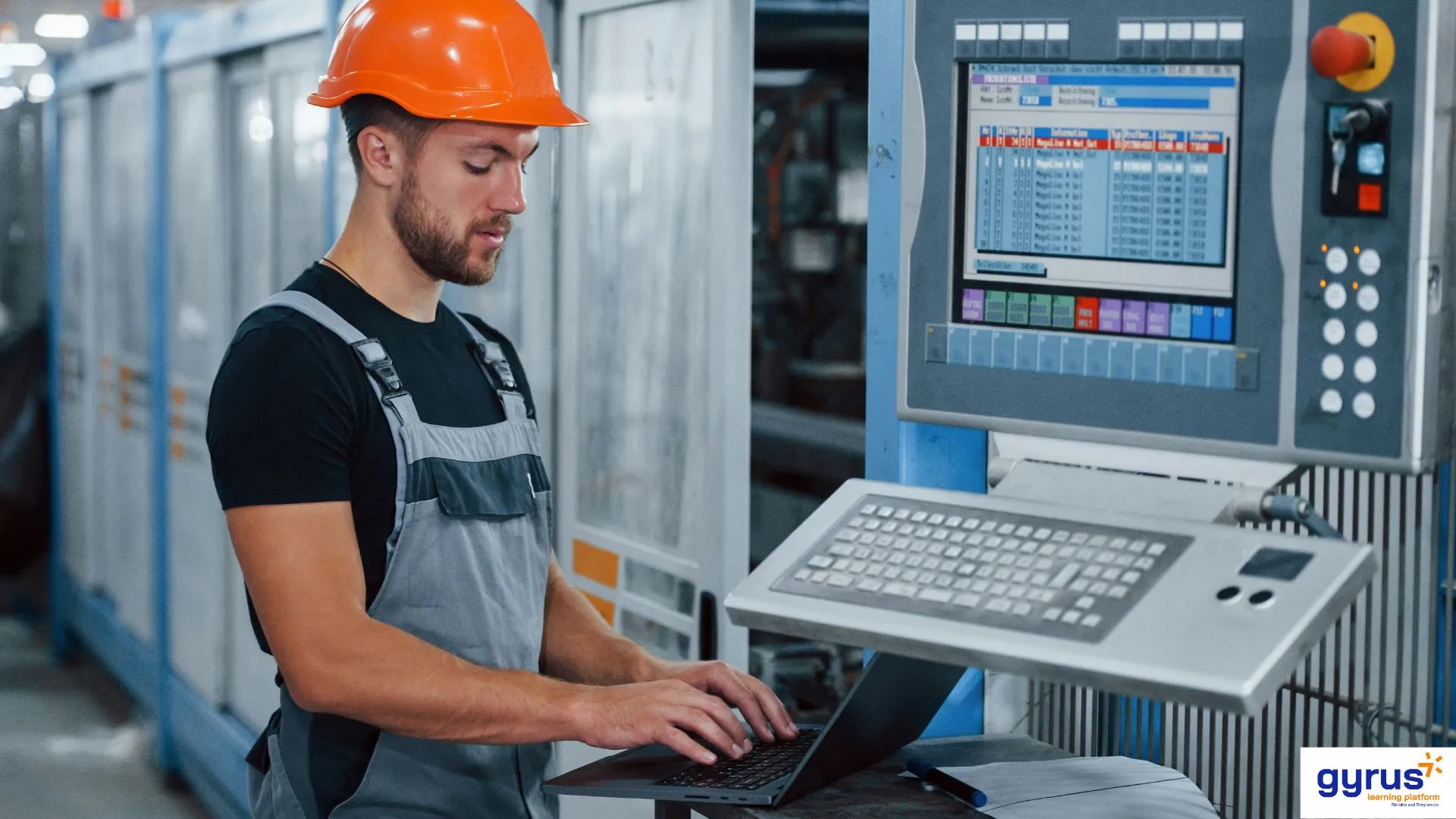LMS for industrial training is becoming the backbone of modern manufacturing workforce development. In today’s competitive landscape, manufacturing companies must operate efficiently while complying with strict safety and regulatory standards. Traditional training methods no longer meet these growing demands.
A robust industrial workforce training platform streamlines the training process, empowering manufacturers to develop skilled employees faster and more cost-effectively. This blog explores the importance of LMS in manufacturing, its benefits, and best practices to drive operational efficiency.
Why Manufacturing Needs LMS for Industrial Training
The manufacturing industry constantly faces challenges like labor shortages, rapid technological advancements, and rising compliance requirements. Training new hires or upskilling existing staff manually is time-consuming, costly, and inefficient.
An LMS for industrial training provides an integrated, digital platform to solve these problems. It enables companies to:
Using a manufacturing LMS platform, industries create consistent, structured training that reaches every employee—whether on the factory floor or at a remote site.
Key Benefits of LMS in Industrial Workforce Development
1. Streamlined Training Delivery
Delivering complex technical skills is easier with a cloud-based LMS for industries. Employees access courses anytime, anywhere, reducing production downtime.
2. Improved Compliance & Safety
Manufacturing involves high-risk tasks. A safety training LMS for industries ensures workers are well-trained in safety protocols and regulatory standards. Automatic compliance tracking helps businesses stay audit-ready.
3. Cost-Effective Upskilling
Ongoing training is costly if done offline. A cost-effective LMS for industrial companies cuts costs related to travel, printed materials, and instructor fees while improving learning efficiency.
4. Employee Skill Development
A good industrial skills development LMS focuses on practical, job-specific modules. It builds confidence and competence on the factory floor, driving productivity.
5. Personalized Learning Paths
A customized LMS for industrial workforce lets employees follow learning paths that match their job roles. It makes training more relevant and engaging.
Ready to transform your factory training process and boost productivity?
See firsthand how our LMS streamlines industrial training, reduces downtime, and improves workforce efficiency.
Best Practices for LMS in Manufacturing and Industrial Sectors
1. Focus on Practical, Role-Based Learning
Courses should reflect real industrial tasks and problems. Using an industrial training management system, managers assign role-specific courses, making learning meaningful.
2. Leverage Microlearning Modules
Breaking lessons into smaller units helps maintain focus. For instance, safety drills or equipment handling can be taught in short videos or interactive modules on your factory worker training system.
3. Include Compliance Tracking and Reporting
An industrial training LMS with compliance tracking ensures employees complete required certifications. Real-time reporting provides clear insights into workforce readiness.
4. Promote Continuous Learning
Operational efficiency improves when learning is continuous. A LMS for technical training enables regular updates on new technologies or processes.
5. Incorporate Assessments and Feedback Loops
Quizzes, hands-on simulations, and feedback sessions within an industrial e-learning solution help reinforce learning and validate knowledge transfer.
Real-World LMS Applications in Industrial Settings
1. Technical Equipment Training
2. Compliance and Regulatory Training
With increasing audits, companies rely on an LMS for manufacturing and industrial sectors to manage OSHA, ISO, and local regulations.
3. Safety Protocols
Safety is critical. A safety training LMS for industries ensures workers are trained in emergency response, hazard detection, and safe machine operations.
4. Onboarding New Hires
A strong industrial worker learning platform helps new hires gain required knowledge before starting on the floor, reducing mistakes and accidents.
How to Choose the Best LMS for Industrial Training
Discover how a custom industrial LMS can solve your training challenges.
Talk with our experts to find the right-fit LMS features tailored to your unique manufacturing needs.
Measurable Benefits: Boosting ROI through LMS Implementation
Manufacturers using the right LMS report several measurable gains:
Remember to refresh your content regularly to stay compliant and relevant.
Future Outlook: LMS as a Strategic Industrial Investment
The future of industrial workforce development lies in industrial e-learning solutions. As factories become smarter, training will continue shifting online. LMS platforms will play a central role in:
Investing in the right LMS for industrial training now ensures manufacturers stay competitive, compliant, and efficient for years to come.
Don’t let outdated training slow down your operations—modernize now.
Browse our scalable, compliance-ready LMS tools built specifically for industrial and factory environments.
Conclusion
In summary, an LMS is no longer a “nice-to-have” but a necessity in industrial settings. The right LMS for industrial training improves workforce competence, ensures compliance, and builds a culture of continuous improvement.
Manufacturers investing in industrial training LMS with compliance tracking and upskilling solutions stay ahead of competitors while protecting their most valuable asset—their people.
Operational efficiency, safety, and productivity all start with one decision: choosing the best LMS for your manufacturing success.
Frequently Asked Questions





